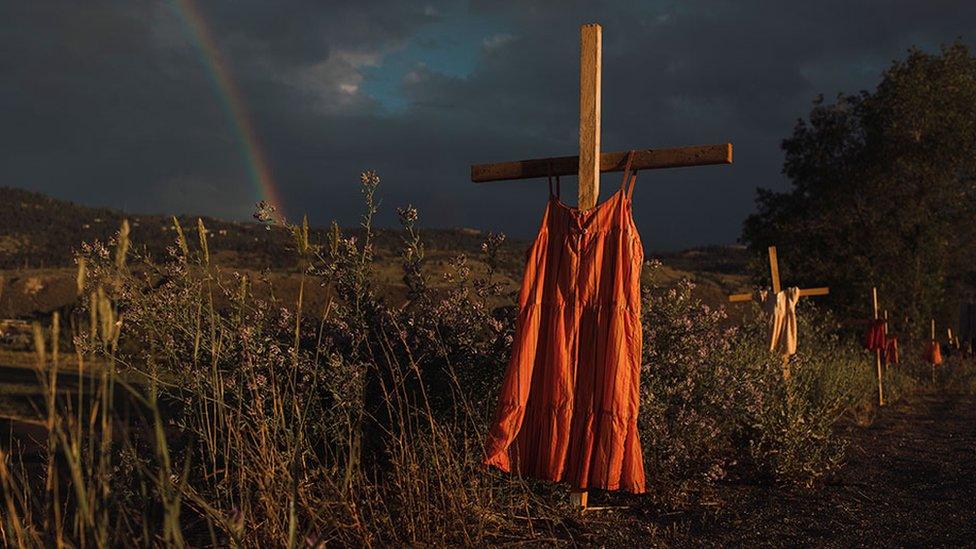World Press Photo won by image of wounded pregnant woman in Mariupol
- Published
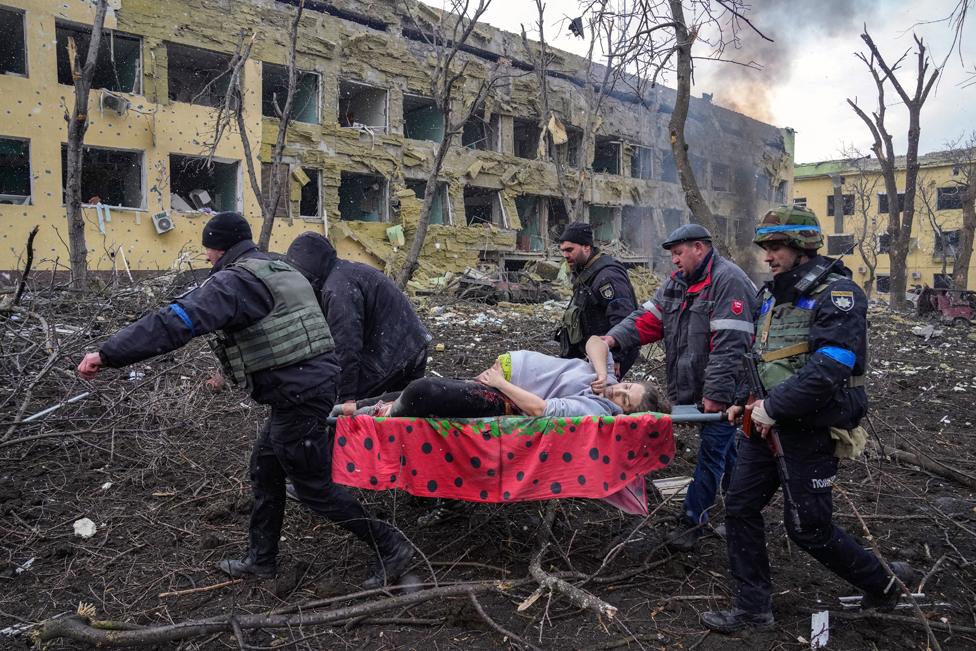
Evgeniy Maloletka's picture, Mariupol Maternity Hospital Airstrike, has been named World Press Photo of the Year.
Taken on assignment for the Associated Press, the image shows Iryna Kalinina, a wounded pregnant woman aged 32, being carried on a stretcher, across debris from a maternity hospital in Mariupol, Ukraine, that was damaged during a Russian airstrike.
Her baby, named Miron after the word for "peace", was stillborn, and half an hour later Iryna also died.
Ukrainian photographer Evgeniy Maloletka was one of the very few photographers documenting events in Mariupol at that time.
"We came to Mariupol just one hour before the invasion," says Maloletka.
"For 20 days, we lived with paramedics in the basement of the hospital, and in shelters with ordinary citizens, trying to show the fear Ukrainians were living with."
The World Press Photo recognises the best photojournalism and documentary photography.
This year's winners were chosen from more than 60,000 entries by 3,752 photographers from 127 countries.
The Story of the Year, was awarded to Mads Nissen for a series entitled The Price of Peace in Afghanistan.
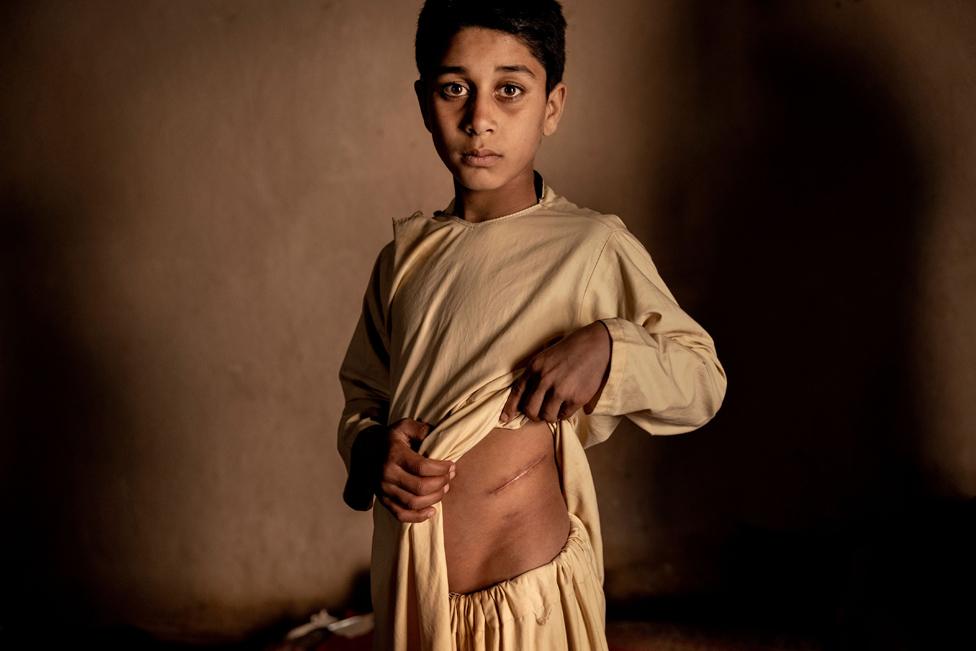
The series depicts life in Afghanistan under the Taliban and a lack of international aid.
Unable to afford food for the family, the parents of Khalil Ahmad, 15, decided to sell his kidney for US$3,500 (£2,800).
The lack of jobs and the threat of starvation has led to a dramatic increase in the illegal organ trade.
The jury chose Battered Waters by Anush Babajanyan as the winner of the Long-Term Project Award.
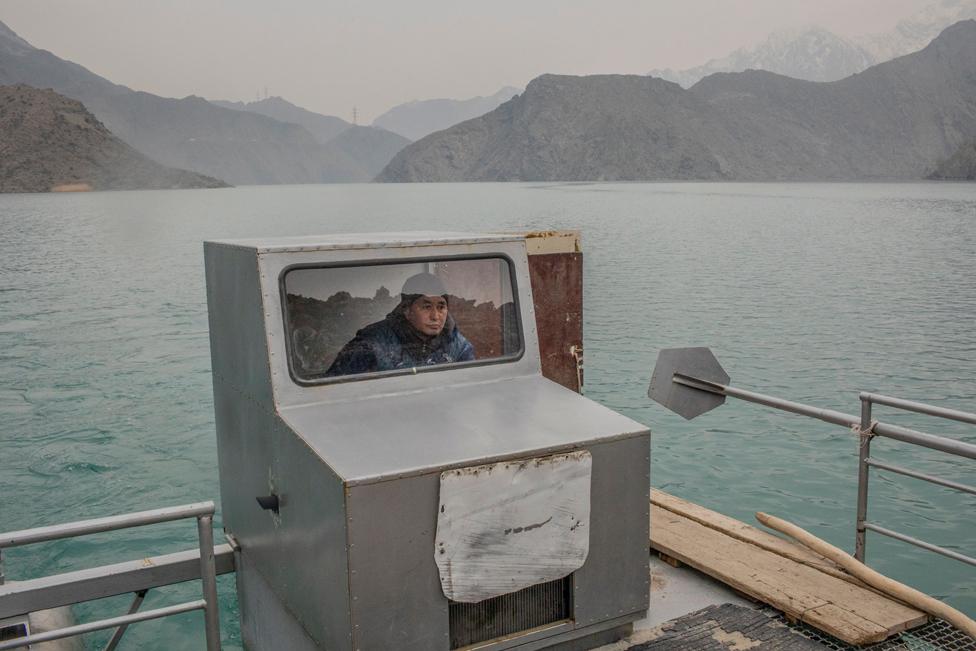
The project, shot for VII Photo and National Geographic Society, explores the impact of water management after the end of the Soviet Union which has been made worse by the climate crisis.
Babajanyan's work, spanning years, documents the resilience of people living in Central Asia.
"Water intertwines with their lives," explains the photographer.
"People's lives are also changing because the climate is changing, and they have to adapt to that, too. I wanted to capture this powerful spirit."
The Open format award went to Mohamed Mahdy for Here, The Doors Don't Know Me - a project in collaboration with residents of Al Max in the Egyptian city of Alexandria, to preserve the memory of their fast-disappearing fishing village.
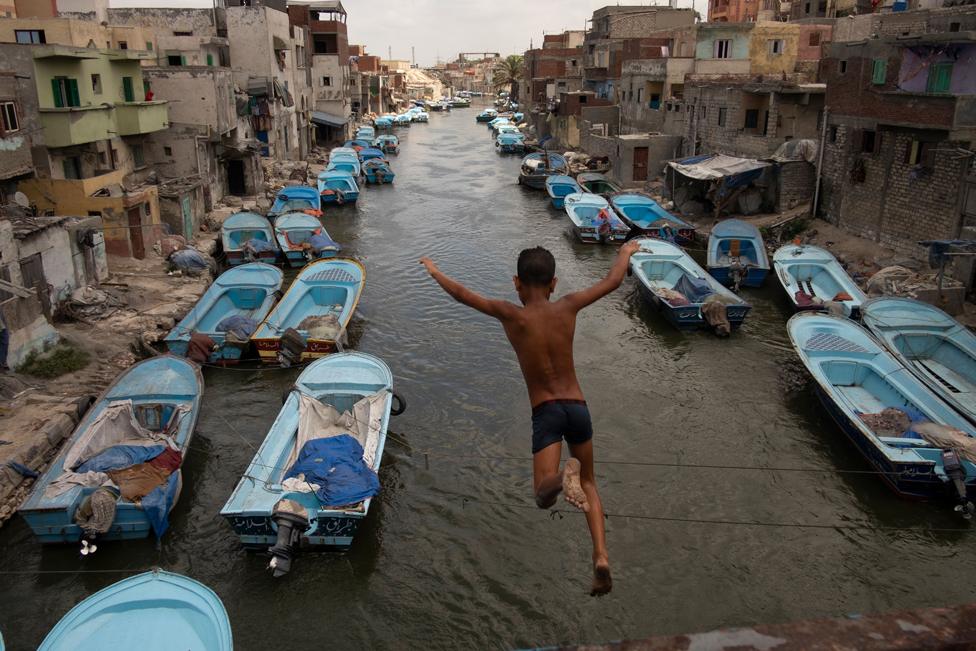
The World Press Photo regional winners were also announced, some of which can be seen below, with captions from the competition.

Africa, Singles: The Big Forget by The Lee-Ann Olwage, Bob & Diane Fund, for Der Spiegel
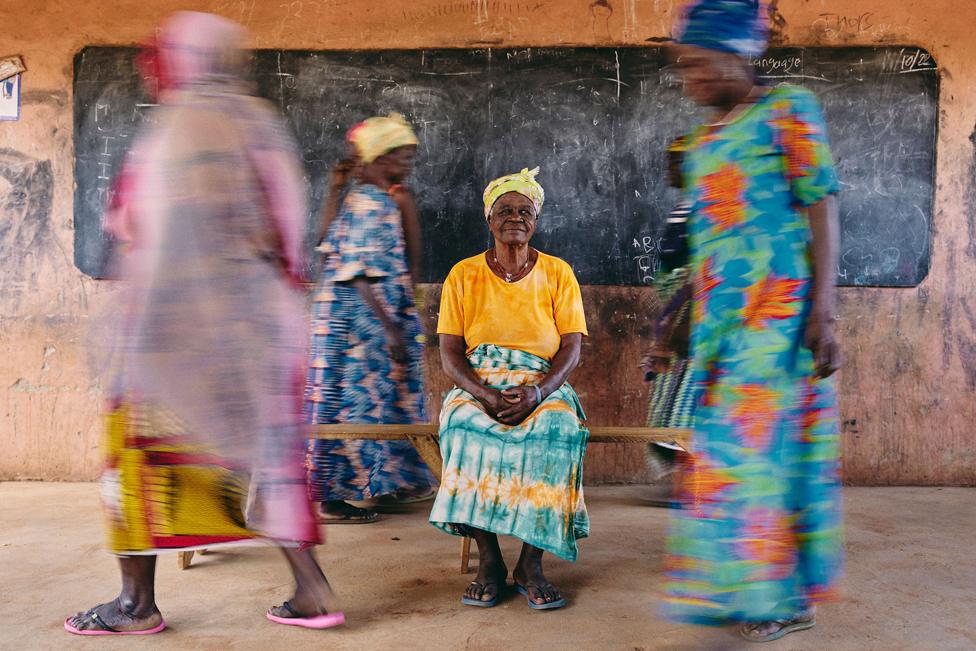
Sugri Zenabu, a mangazia or female community leader of the Gambaga "witch camp", sits encircled by residents in Gambaga, Ghana.
Zenabu shows some signs of confusion and memory loss associated with dementia.

Asia Singles: Shireen Abu Akleh's Funeral by Maya Levin for Associated Press

Israeli police clash with mourners carrying the coffin of slain Al Jazeera journalist Shireen Abu Akleh during her funeral in east Jerusalem, 13 May 2022.
Abu Akleh, a Palestinian-American reporter who covered the Mideast conflict for more than 25 years, was shot dead two days earlier during an Israeli military raid in the West Bank town of Jenin.

North and Central America, Singles: The Dying River by Jonas Kakó for Panos Pictures
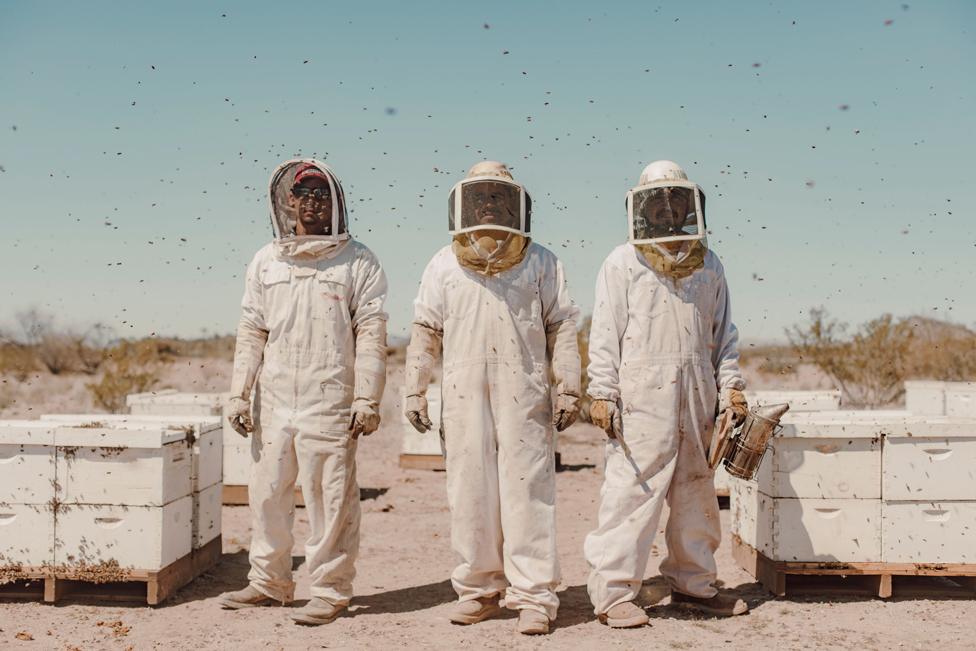
Alfredo, Ubaldo, and Jose tend beehives near Wenden in the Arizona desert, USA.
A substantial decrease in rainfall in the area means that the men must now provide water for the bees in troughs.
This image is part of a broader project on how the climate crisis and increasing water demand are affecting the Colorado River.

South America, Singles: Oil spill in Lima by Musuk Nolte for the Bertha Foundation
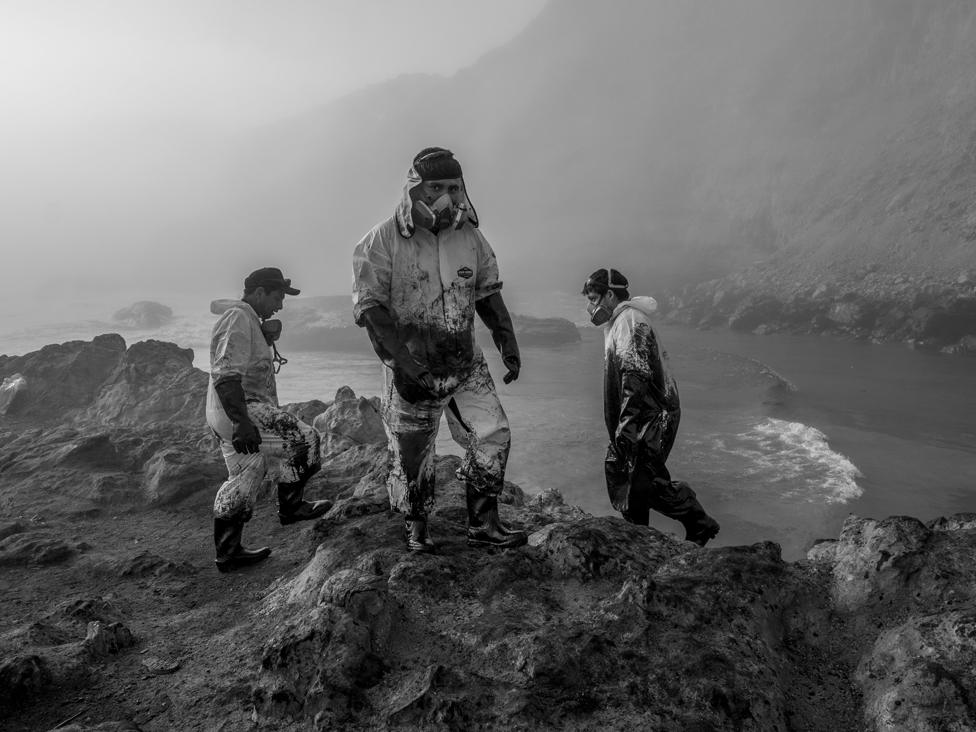
Workers deal with the environmental disaster caused by an oil spill at Repsol's nearby La Pampilla refinery at Playa Cavero, Peru.
On 15 January, nearly 12,000 barrels of crude oil spilled into the sea while a tanker was unloading at the refinery.
Repsol, the Peruvian government and the Italian tanker company each disputed the cause of the spillage, trading accusations of negligence, inadequacy of equipment, and mismanagement.
An exhibition of the winning photographs and stories from the 2023 contest, will open at De Nieuwe Kerk, Amsterdam in the Netherlands on 22 April 2023
All photos subject to copyright
Related topics
- Published8 April 2022
